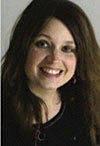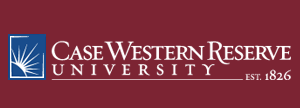
Cheryl Toman is assistant professor of French and Francophone studies in the department of modern languages and literatures and a member of the program faculty in Women's Studies and Ethnic Studies. She spent spring 2007 as a Fulbright Scholar at Lebanese American University in Beirut.
What is your background?
I was a first-generation college student, born and raised on Chicago's segregated south side. My family is of Eastern European origin; my grandparents couldn't read or write. Growing up in a working-class environment, I learned a lot about racism, sexism and intolerance, which may be why I ended up in the fields I have (Women's Studies and African Studies). I did my undergraduate work at the University of Illinois-Chicago, with a year at the Sorbonne in Paris. I earned an M.A. from the University of Chicago, and then a Ph.D. in Interdisciplinary French Studies from the University of Illinois at Urbana-Champaign.
Considering your areas of expertise, Beirut seems a rather unusual destination for your Fulbright. What was the focus of your work there?
Actually, Lebanon was a more logical choice than one might think. French is one of the languages spoken there, as Lebanon was a French mandate until 1943. As for women's studies, I came to Lebanese American University to work with the Institute for Women's Studies of the Arab World. Earlier, in 2005, I had organized a teleconference between the Institute and Case Western Reserve on "Women, War, Music, and Identity." The professional relationships I developed at the time led to this experience.
During my Fulbright semester, I taught a graduate seminar on sub-Saharan African feminist literature, my primary specialization. I also edited a guest issue of Feminist Forum, a well-known journal in women's studies, on the topic of women and war. It was exciting to work with the Institute on this project, and also to invite contributions from scholars worldwide who are currently working and thriving in conflict regions.
What was it like to live in Lebanon?
When the average American thinks of Lebanon, I believe he or she thinks of a desert or a war zone. But it is also a beautiful country on the Mediterranean Sea, with mountains as a backdrop and a sprawling, diverse city as its capital. There is a mixture of religions, so you see churches and mosques everywhere; it's beautiful to hear the Muslim call for prayer from the mosques five times a day.
When you describe the experience to your faculty colleagues, what do you tell them?
I advise them to consider applying for a Fulbright. Lebanon has 31 universities, and they enjoy wonderful intellectual exchanges. The possibilities are really endless.
